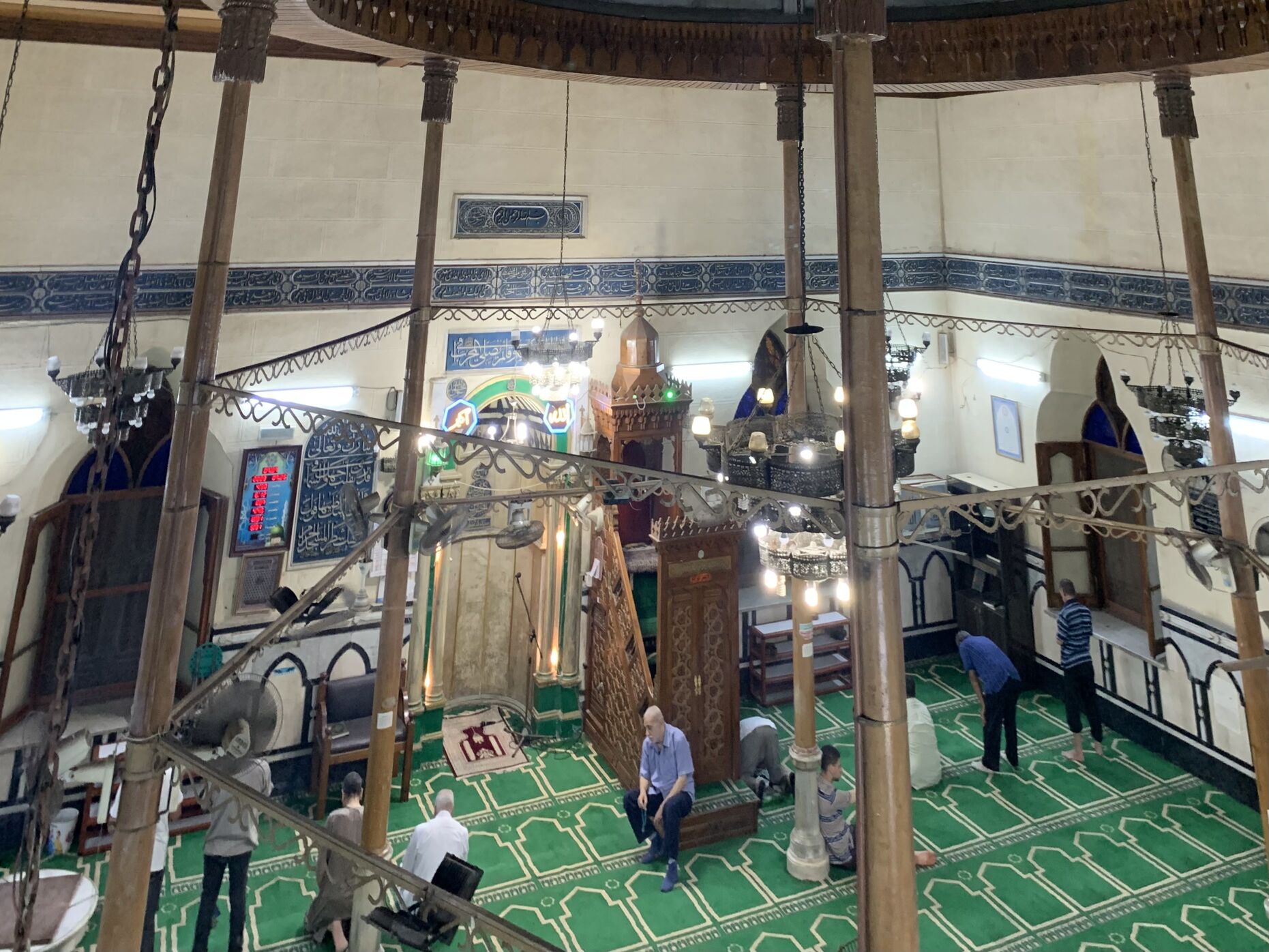When one thinks of Alexandria, Sufism might not immediately come to mind. Yet within its history lies the birthplace of the renowned Burda poem, a work whose fame surpassed that of its author, thirteenth-century Sufi scholar Imam Al-Busiri. Regarded as the most treasured eulogy and expression of love and reverence for Prophet Muhammad throughout the Islamic sphere, the poem’s verses, particularly the famous lines “Mawlāya şalli wa sallim dā-iman abadan/ ‘Alā Ĥabībika Khayril khalqi kullihimi” (O my Master, send your salutations and blessings forever upon Your Beloved, the best of all creations), resonate deeply in the hearts of countless Muslims from around the world, some of whom know these words by heart even if unaware of the poem’s history and origin. In the heart of Alexandria, the Al-Busiri mosque stands as a testament to the profound influence of the Burda poem, acting as a revered destination for Sufi followers on their spiritual journey. Situated in Medan El-Masaged (Square of the Mosques) in Anfushi, Alexandria, the mosque stands facing the renowned Al-Mursi Abu Al-Abbas mosque. The latter mosque forms an essential part of the core tour for visitors to Alexandria, along…
Sufi Sanctum in Alexandria: Al-Busiri Mosque and the Revered Burda Poem
July 30, 2023




